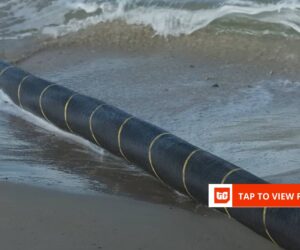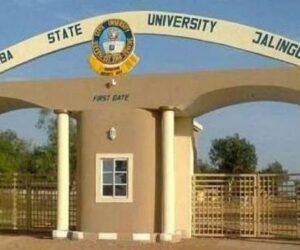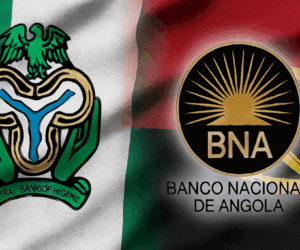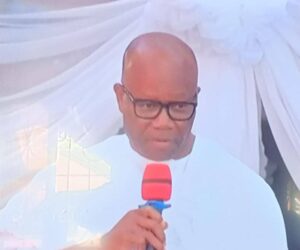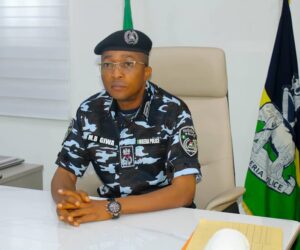The federal government on Sunday defended President Bola Tinubu against allegations of favouring some regions over others in the distribution of projects and appointments, insisting his leadership has been marked by equity, justice, and inclusivity.
The Minister of Information and National Orientation, Mohammed Idris, in a statement said the administration has, “at all times, been guided by the principles of fairness, justice, and equity in the distribution of federal government projects, appointments, and opportunities across all six geopolitical zones.”
The president has faced repeated criticism over alleged favouritism in governance. The most recent came from Ali Ndume, a senator, who accused him of lopsidedness in federal appointments.
“The figures are there. You can look at the figures. I sent you one. I sent you figures. It’s not that I’m just making accusations. And it’s not that I’m saying, well, the president has no right to do that kind of thing.
“But it’s a constitutional provision. Section 13, I mean, Section 14 (3) of the constitution is very, very clear,” Punch newspapers quoted him as saying on Arise TV’s Prime Time.
Mr Idris described recent criticisms as “half-truths and fake information” aimed at distorting the record of the Tinubu administration.
He said capital projects have been equitably shared across the country, with no region ignored. “No region is playing a second fiddle or ignored,” he said, adding that all six zones now have Regional Development Commissions to drive local growth.
He cited the Lagos–Calabar Coastal Highway in the South and the Sokoto–Badagry Superhighway in the North as examples of balance in flagship projects.
“This sense of balance runs through all the major infrastructure projects being implemented today,” he said.
Infrastructure spending
Government data showed the Northwest as the biggest beneficiary of federal projects, receiving N5.97 trillion- over 40 per cent of approvals. The South-South received N2.41 trillion, North Central N1.13 trillion, South East N407 billion, North East N400 billion, and South West (excluding Lagos) N604 billion.
Ongoing “legacy road projects” include the Lagos–Calabar Coastal Highway, Sokoto–Badagry Superhighway, Trans-Sahara Highway in Ebonyi, and the Akwanga–Jos–Bauchi–Gombe road. Out of the total length of these projects, Mr Idris said the North accounts for 52 per cent and the South 48 per cent.
Projects in northern states include the dualisation of the Sokoto–Gusau–Funtua–Zaria Road (N824 billion), the Abuja–Kaduna–Kano Road (N764 billion), and the BUA Tax Credit Road across Jigawa, Katsina, and Kano. Others include the Zaria–Hunkuyi Road, Kano Northern Bypass, and key roads in Borno, Yobe, Kebbi, and Benue.
The Lokoja–Okene dualisation and Kaduna–Katsina Roads, worth N150 billion, were also listed among major works.
In the South, the minister highlighted the Lagos–Ibadan and Lagos–Sagamu roads, the Oyo–Ogbomoso–Ilorin project, and rehabilitation of Carter, Third Mainland, and Eko bridges in Lagos.
In the South-east, major projects include the Enugu–Onitsha Road funded through MTN and CBC tax credits, the Enugu–Abakaliki Road, the second Niger Bridge Access Road, and the Lokpanta–Enugu Road.
The South-south region, he added, has projects such as the Eleme–Onne Road, East–West Road Section 2, Nembe–Brass Road, Lokoja–Benin dualisation, the Bodo–Bonny Road in Rivers, and access roads to the 2nd Niger Bridge in Delta State.
Rail and others
Mr Idris said the government has secured funding for light rail projects in Kano (N150 billion) and Kaduna (N100 billion), alongside metroline projects in Lagos and Ogun. Together, these efforts and other rail rehabilitation projects, including the Eastern Corridor linking Port Harcourt to Maiduguri, are expected to generate more than 250,000 jobs.
The minister also pointed to the revival of the 255MW Kaduna Power Plant, progress on the Ajaokuta–Kaduna–Kano gas pipeline, and new oil exploration in the North, with three wells drilled in the Kolmani region of Bauchi and Gombe States.
The Kano–Maradi rail line, inherited at just 5 per cent completion, has now reached 67 per cent following increased government support, he said.
Fairness in governance
The president’s appointments, Mr Idris said, have reflected Nigeria’s diversity. “President Tinubu has consistently appointed capable Nigerians from every part of the country, guided by competence and inclusivity rather than sectional considerations,” he said.
READ ALSO: PREMIUM TIMES’ journalist shortlisted for Isu Elihle journalism award
He added that the creation of five new Regional Development Commissions and the Ministry of Livestock Development showed the government’s determination to address “Nigeria’s unique developmental needs in a manner that benefits all sections of the country.”
The minister described Mr Tinubu as “a fair, pragmatic, and consequential reformer” whose “leadership is inclusive, vision unifying, and commitment to equity and justice unwavering.”
“President Tinubu is building national infrastructure, not local trophies,” he said. “Nigerians can rest assured that under his watch, no part of this country will be left behind.”






